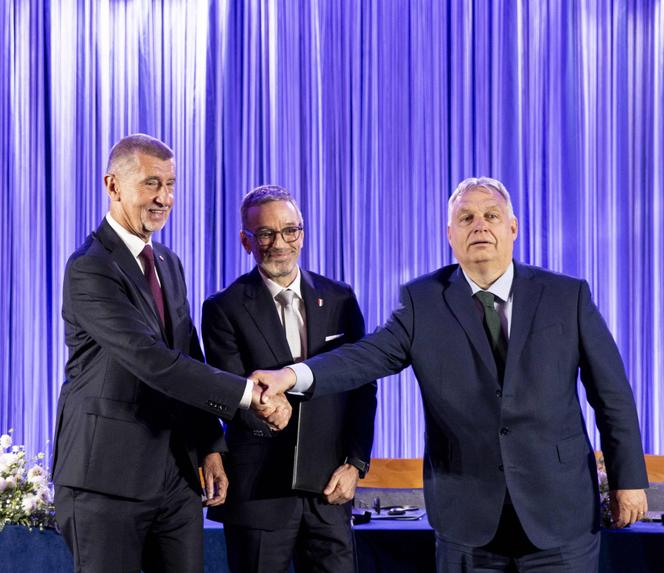


Since the European elections on June 9, Europe's far-right movements have been maneuvering to consolidate their power within the Strasbourg chamber. In the run-up to the first session of the new parliament, from July 16 to 19 in the Alsatian capital, Marine Le Pen could announce her decision to join forces with Viktor Orban, the Hungarian prime minister, as soon as July 8.
There was no tidal wave of sovereigntist and Euroskeptic right-wingers in the June 9 elections, but they did make strong political advantage in France, the Netherlands and Germany, gaining around 30 seats in the European Parliament. With some 190 elected members out of a total of 720 MEPs, they now account for just over a quarter of the representatives.
Today, nationalist right-wing parties in the European Parliament operate in a dispersed manner, which limits their sphere of influence. Between the enmities that can exist between them and the sometimes fundamental ideological differences – on their relationship with Russia for example – they find it extremely difficult to unite. As a result, even though their ideas have made headway outside their own ranks, they still struggle to make their mark on the EU's legislative agenda.
Radical right-wingers can be found in several political groups: the European Conservatives and Reformists (ECR), which includes Fratelli d'Italia and the Polish Law and Justice party (PiS), as well as Identity and Democracy (ID), which includes the Rassemblement National (RN). Then there are the non-attached members (NI) who, because they are not affiliated to any group, have fewer financial resources, less access to committee leadership positions and less speaking time in the chamber. This category includes Fidesz, forced to leave the Christian Democrats' European People's Party (EPP) in March 2021, and Alternative for Germany (AfD) who the RN got excluded from ID following a pro-Nazi statement by its now ex-leader Maximilian Krah.
The radical right is well aware that this fragmentation is detrimental to their interests. Against this backdrop, in recent weeks their leaders have stepped up meetings and contacts of all kinds to see how they can work together, even if it means putting aside some of their differences. Three of them, who rule powerful parties, have been at the forefront of the recomposition taking place on the far right of the European Parliament: Orban with Fidesz, Italian Prime Minister Giorgia Meloni with Fratelli d'Italia and Le Pen with the RN.
You have 66.51% of this article left to read. The rest is for subscribers only.
